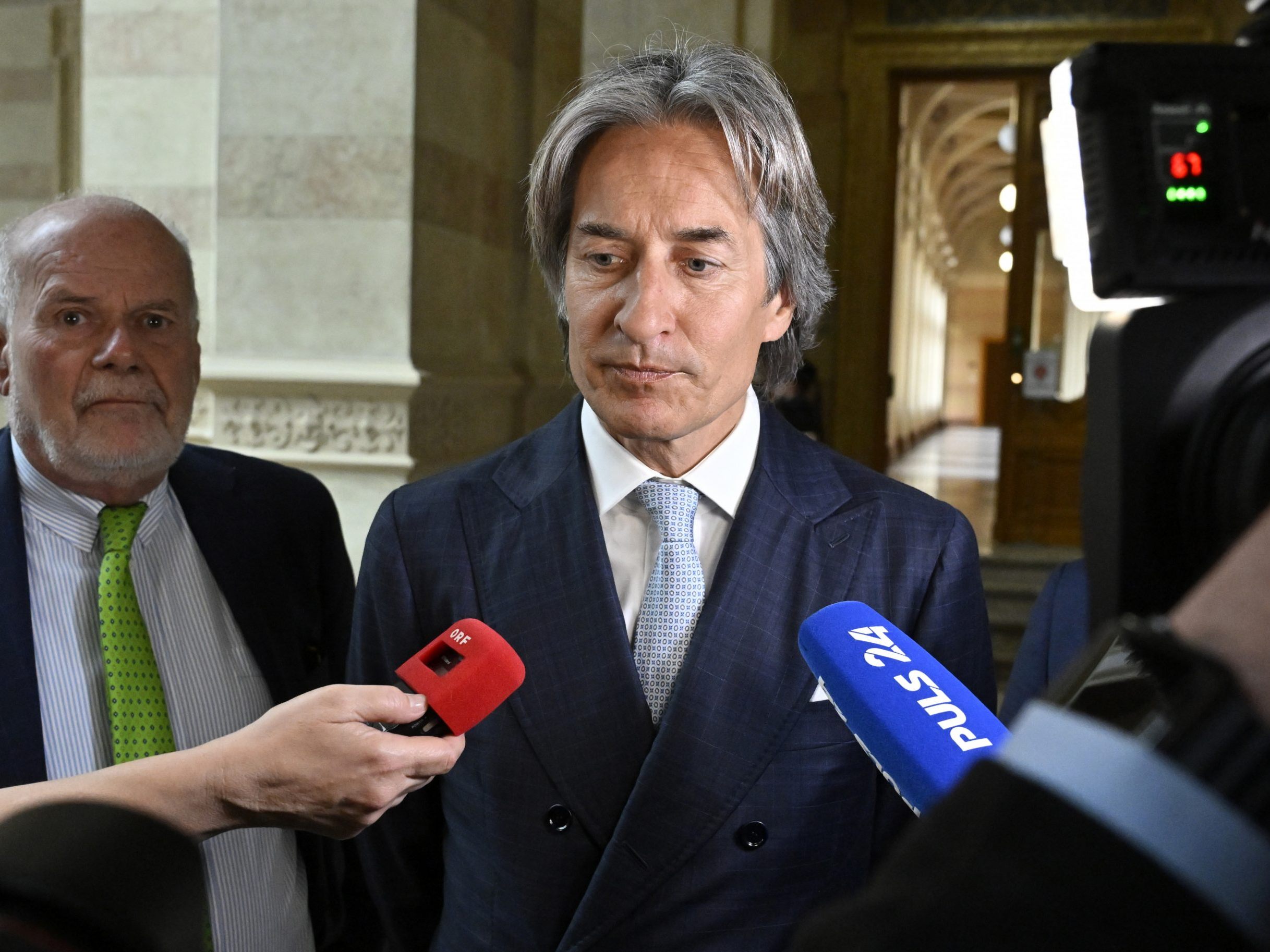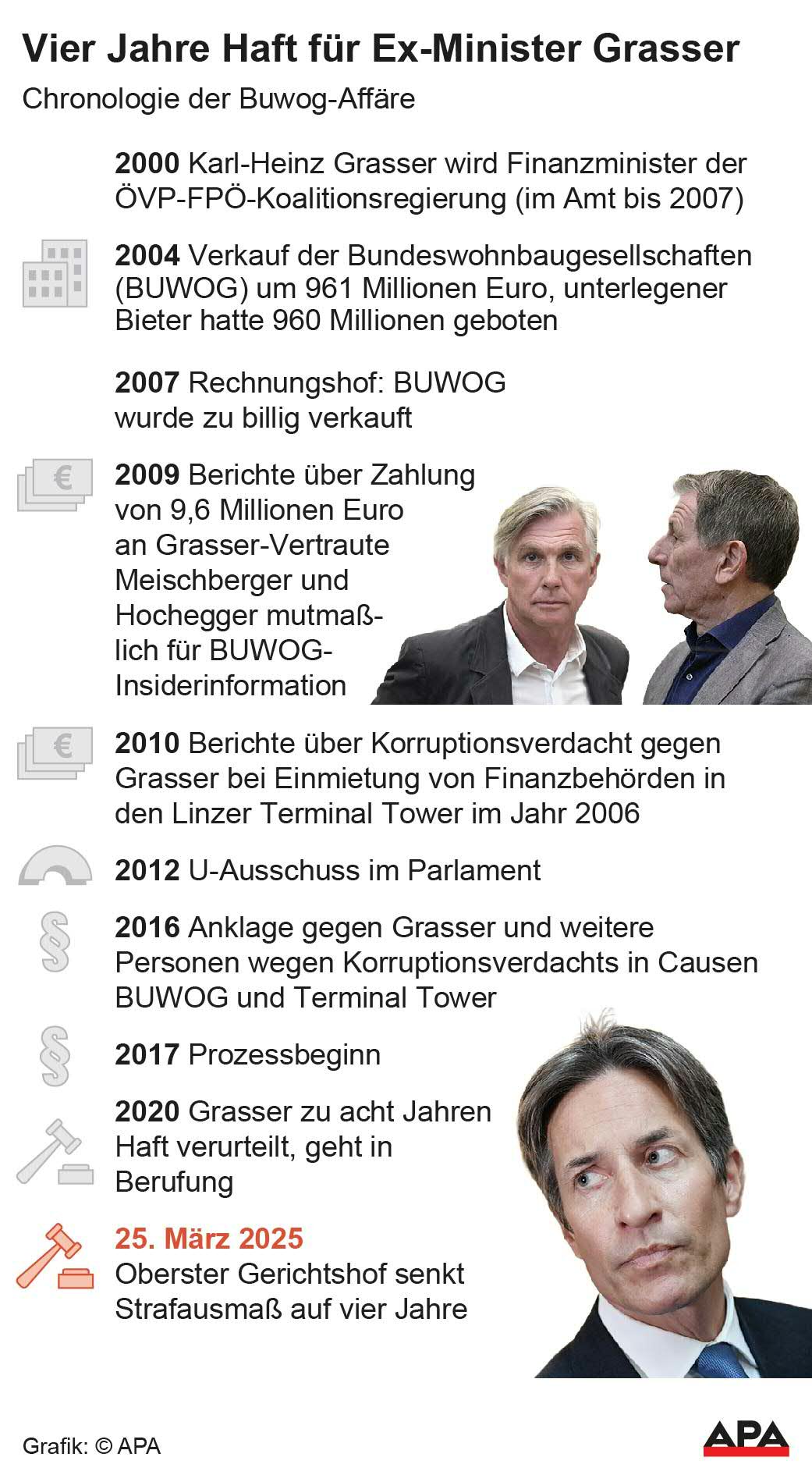OGH Reduces Prison Sentence for Grasser

In 2020, Grasser was sentenced to eight years in prison by the Vienna Regional Criminal Court. The Supreme Court halved the sentence for former FPÖ Secretary General Walter Meischberger to 3.5 years of imprisonment.
Imprisonment for Grasser Reduced
For former lobbyist Peter Hochegger, the additional imprisonment was reduced from six to three years, partially suspended. The Supreme Court reduced the additional imprisonment for former Immofinanz CEO Karl Petrikovics from two years to 12 months. The chairwoman of the Supreme Court panel of judges, Christa Hetlinger, emphasized during the verdict announcement on Tuesday that the Buwog and Terminal Tower Linz cases are now legally concluded. The allegations against Grasser regarding evidence tampering were dismissed.
Today's decision by the Supreme Court panel of judges marks the end of a real estate deal that has occupied the Republic for 21 years. At that time, around 60,000 federal apartments were sold for 961 million euros to a consortium around Immofinanz, while the losing bidder CA Immo had offered just 1 million euros less for the apartments. This caused surprise; however, it only became apparent a few years later that this privatization might have been manipulated, when it became known that two of Grasser's friends - the former lobbyists Meischberger and Hochegger - had received 9.6 million euros in commission from the Immofinanz deal. Another topic in the proceedings was commission payments of 200,000 euros in connection with the leasing of the financial authorities in the Linz Terminal Tower. During the proceedings, further smaller charges related to the Telekom affair were included in the trial.
Supreme Court Sees No Unfairness
The alleged procedural errors in the first trial and a bias of the first judge Marion Hohenecker, extensively presented by the defense, do not exist, explained the chairwoman of the Supreme Court panel. There was no unfair trial, according to the Supreme Court. The defense had repeatedly criticized the composition of the first court under Judge Hohenecker as "not neutral" and "biased."

The chairwoman of the Supreme Court panel extensively addressed the defense's allegations of bias against the first judge. The behavior of her husband, a judge, is not to be condoned, but it is not part of the proceedings. The files do not provide any indications that Judge Hohenecker acted in a biased manner. The Supreme Court panel cannot find any misconduct in the audio recordings in the large jury courtroom of the Vienna Regional Criminal Court.
As the chairwoman Hetlinger explained, she had the impression that the defendants believed the Supreme Court would decide on guilt or innocence. However, this is not the case; the Supreme Court is concerned with whether the first trial was conducted without defects. The chairwoman noted that the defense focused less on complaints about defects and facts and more on issues such as seating arrangements, live tickers, or audio recordings in the courtroom.
(APA/Red)
This article has been automatically translated, read the original article here.





